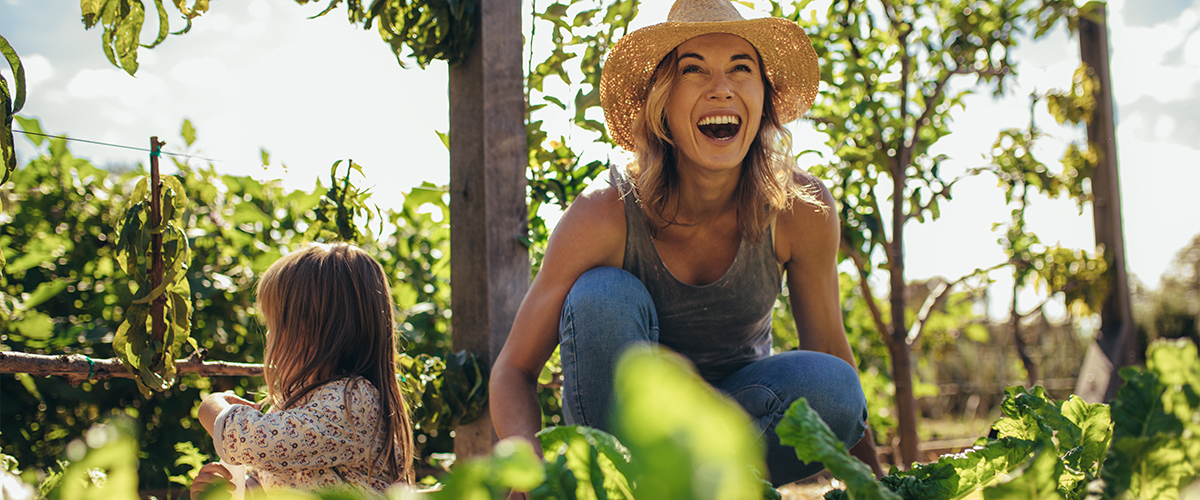
Home Herbs: Plant Your Way to Healthy Recipes
Warmer weather is upon us, and so are the cravings for healthy, lite, great-tasting meals—luckily, the simplest way to add flavor and nutrients to your meals is through fresh herbs. Basil, cilantro, parsley, mint, dill, chives, and oregano can be beautiful additions to your summer dishes.
Even better? You can keep these fresh herbs in the kitchen all season long by growing them yourself! Keep reading—we’re going to share our favorite herb garden tips.
Growing Your Herbs
If growing fresh herbs seems overwhelming, you'll be pleasantly surprised to know how simple it can be to get started! Cilantro, parsley, mint, dill, chives, and oregano are usually great for beginners. They require full sun to partial shade, which can be achieved by placing your herbs in a south-facing window.
Basil is the trickiest because it needs full sun and a warmer place to blossom, typically around 70 degrees. If you're a true beginner at growing herbs, starting with less fussy herbs like parsley or dill will be more manageable.
Once your herbs start producing, they are easy to maintain and can be used whenever you want to add a fresh bite to your meal! You can also toss some herbs into your favorite IsaLean shakes!
Select Your Flavors
Now that you have established a nice sunny area for your herbs to thrive in, it's time to decide which herbs will benefit you and your summer cooking best. Here are some of our favorites and the dishes they pair well with.
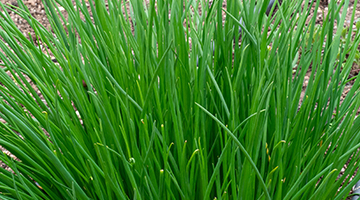
Chives
Chives have a milder flavor and are a tasty topper for many dishes including eggs, potatoes, and fish. Remember to add chives to your plate last so the heat won't destroy their gentle flavor.
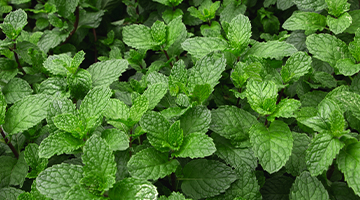
Mint
Mint adds a freshness that can be enjoyed in drinks and can also aid in digestion. How yummy does it sound to add mint to your IsaLean Strawberry shake? Mint also pairs well with other herbs. In fact, unite mint and cilantro with a vinaigrette to elevate your next salad!
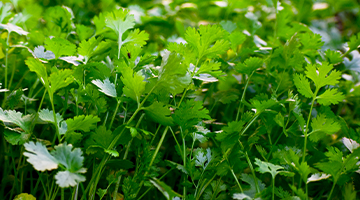
Cilantro
Cilantro adds a nice peppery flavor to root vegetables or can brighten up a fresh salsa. If you don’t like the taste of cilantro, you can easily substitute parsley in your recipe.
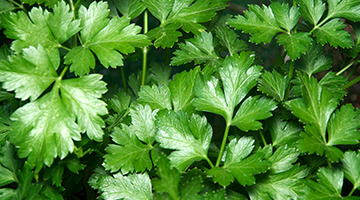
Parsley
Parsley is an herb that can stand on its own, but can also be matched up with other herbs to create a variety of excellent dishes. This versatile herb can be sautéed for soups and broths or used to garnish your favorite Mediterranean meal!
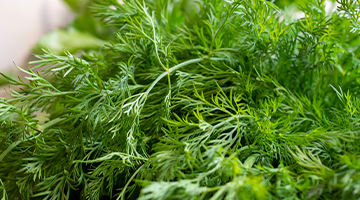
Dill
Pair dill with your favorite veggie stir fry or use it in a creamy sauce on top of a freshly grilled piece of salmon. Dill is also a classic addition to dip with raw veggies.
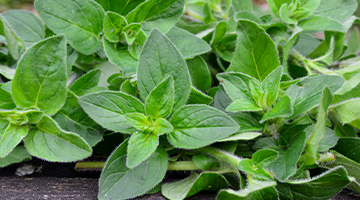
Oregano
Oregano goes great with seafood and various other meats as well as potatoes. It’s also fantastic on your favorite pizza; this Summer’s possibilities are endless with various toppings!
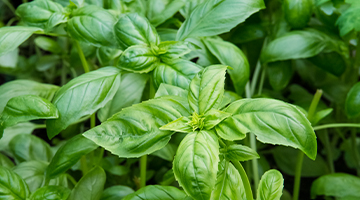
Basil
If you choose the challenge of growing basil, you’ll be rewarded with fresh pesto all season long! Basil can also be an excellent addition to your fruit salad with watermelon and strawberries. You can also take a classic approach by adding basil with Summer tomatoes and a balsamic glaze.
Fresh Benefits
Besides the pure joy of growing and eating your very own herbs, these tiny plants are packed with nutrients and can help reduce the addition of salt to your dishes.
So, what are you waiting for? Dig in today and enjoy these amazing herbs all Summer long!
How to Plant Your Herbs
Now that you know which delicious herbs you want to grow, we need to understand how to get these plants to thrive.
Proper drainage and watering are the keys to success in an indoor garden! Too much water can drown the herbs, and without adequate drainage, the plant sits in wet soil and will not flourish.
Placing gravel or pebbles in the bottom of the pot will protect the herb’s roots. Don’t forget a tray on the bottom of your pot to prevent your well-drained herbs from ruining the area they’re sitting on,
A Bonus
A bonus for having indoor plants is selecting fun and unique pots for planting them! Matching your style and décor with your potted plants is another fun way to incorporate your new green thumb. If your new plant vessel is large enough for the plant and you can achieve proper drainage, the possibilities for containers are limitless!
Choose a soil that is best for indoor plants and rich in organic nutrients. While you can plant different herbs together, it is essential to ensure that each plant has enough room to spread out and grow. One exception to this is the bully herb: mint. Mint doesn’t like to share and will take over any other plant in its presence.
Storing Fresh Herbs
Your herbs are flourishing, and now it's time to enjoy the rewards of your labor! Most of your herbs can be pruned by simply pinching the leaves between your fingers, remembering not to crush the plant, and pulling cleanly off. Regular pruning will keep your plant healthy and promote new growth.
If you find that you are pruning more herbs than you can use right away, it is easy to store them for later use. Wash and dry the herbs thoroughly, wrap them in a damp paper towel, then place them in a storage bag and refrigerate. The moisture from the paper towel will preserve the lifespan and freshness of your herbs.
From there, simply tend, enjoy, repeat!

